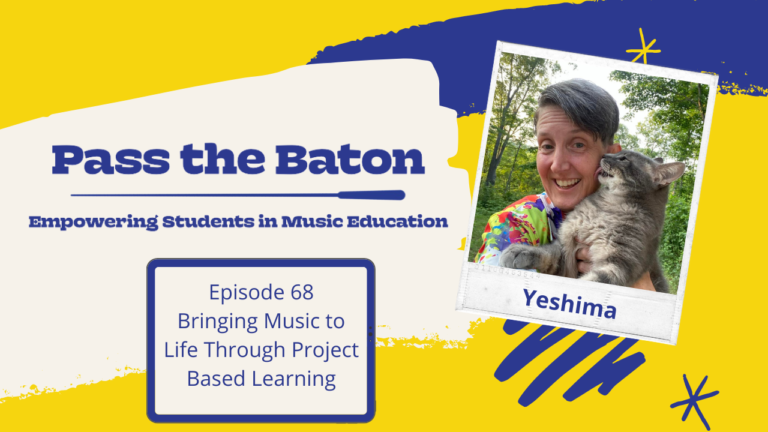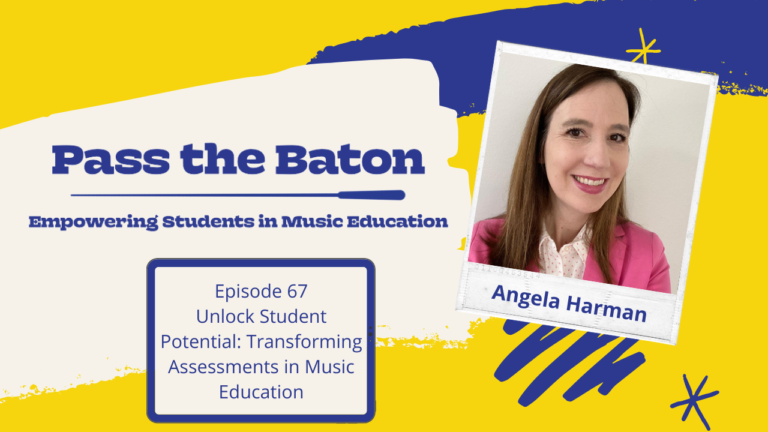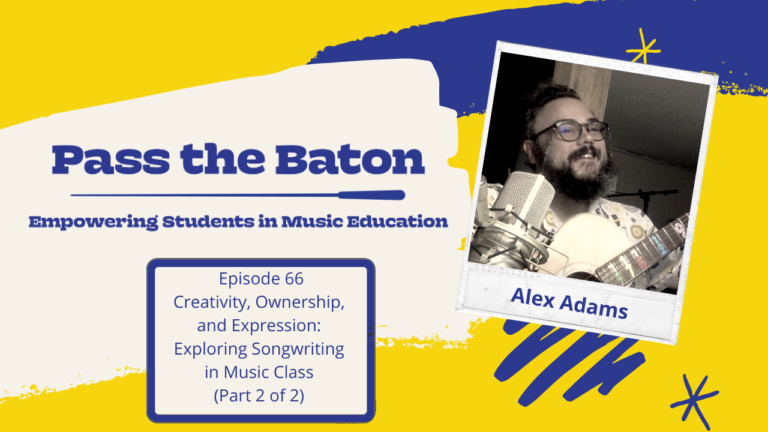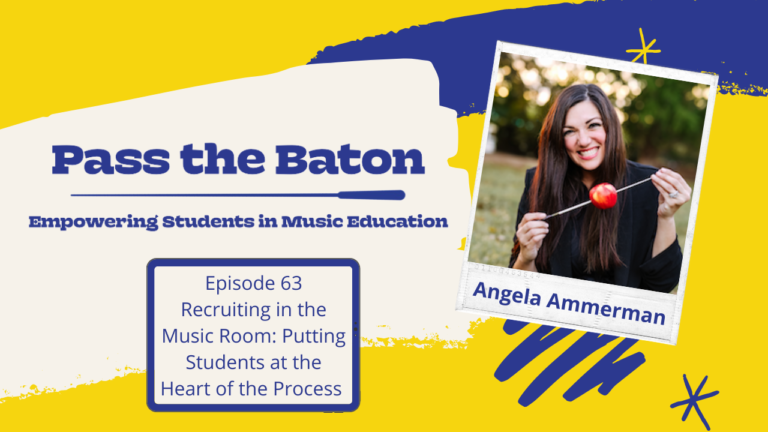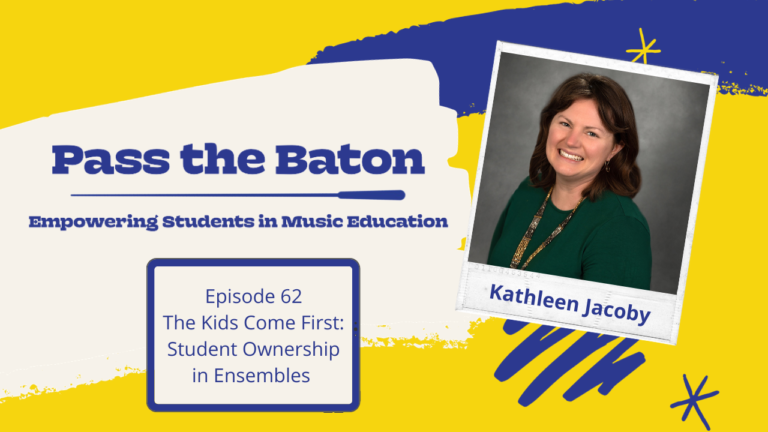Episode 71 – Season 3 Finale: Reflect and Recharge
Season 3 Finale: Reflect and Recharge In Episode 71, Kathryn and Theresa celebrate the conclusion of Season 3, reflecting on the 20 episodes produced and the incredible people they met within the field of music education. Now three years old, the book “Pass the Baton” has had an incredible impact, as did the successful graduate…



